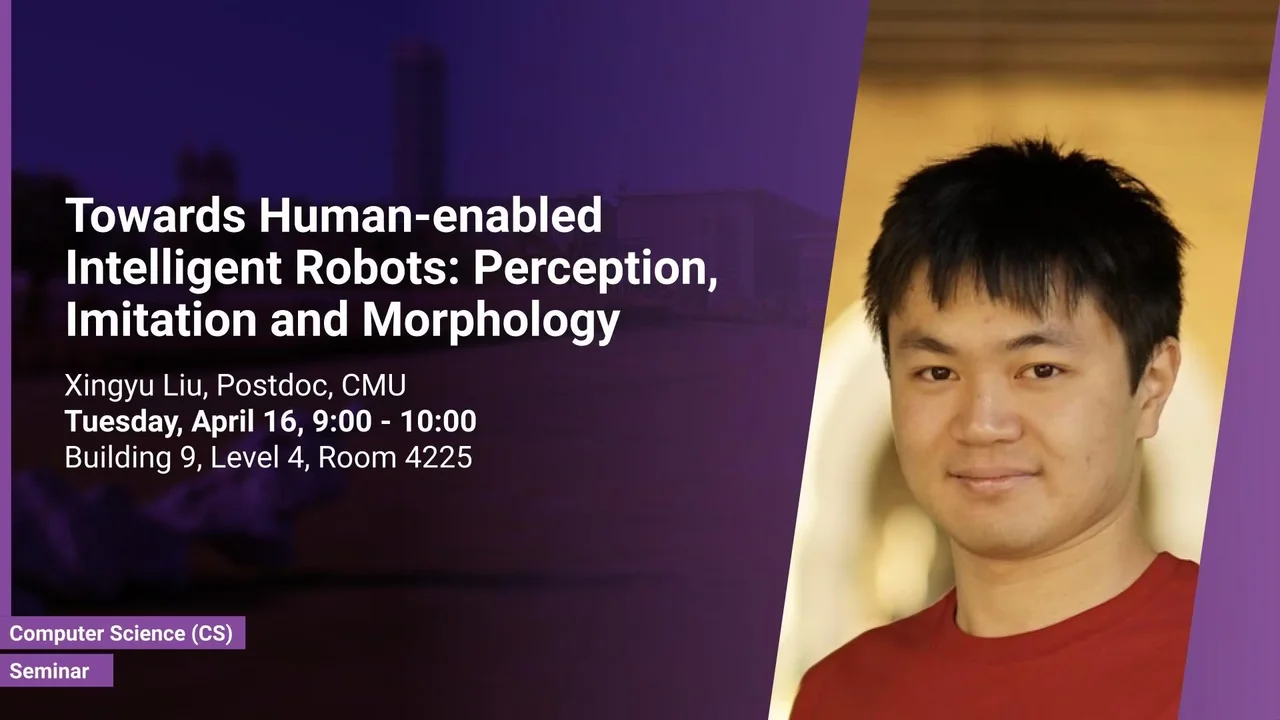
Towards Human-enabled Intelligent Robots: Perception, Imitation and Morphology
The robotics industry has manufactured multiple successful robots that are deployed in various domains and have been playing a significant role in the modern economy.
Overview
Abstract
The robotics industry has manufactured multiple successful robots that are deployed in various domains and have been playing a significant role in the modern economy. How to efficiently build, train and deploy different robots with improved cost and operational safety in diverse tasks in a scalable way? I argue that efficiently using human intelligence embedded in human’s daily activities is the key to help achieve so, and in this talk, I will introduce my research works towards achieving this goal. I will first introduce my research on extracting useful state information about humans and objects via visual perception, and focus on efficient training data collection and annotation that can best utilize human capability. I will then introduce my research on human-to-robot imitation, specifically a new type of methodology that leverages continuous transformation of robot embodiments to co-develop robot hardware and skills, allowing continuous transformation of a human agent to a robot agent and transferring the human skills along the way. As an application, I show how this methodology can be used to efficiently control, design and optimize robots with new morphology and use human experience in this process. I conclude the talk with discussions on my future research plan on improving various aspects of human-enabled safe and low-cost robot systems, as well as their broader impacts on science, engineering and society.
Brief Biography
Xingyu Liu is currently a Postdoctoral Associate at Carnegie Mellon University (CMU) where he works with Professor Ding Zhao in CMU SafeAI Lab. He received his Ph.D. degree from Stanford University where he was advised by Professor Jeannette Bohg. During his Ph.D., he spent time in research labs including Google Brain Robotics and Adobe Research. Prior to Ph.D., he received M.S. degree from Stanford University and B.Eng. degree from Tsinghua University. His research interest is at the intersection of robotics, machine learning and computer vision and he reviews regularly for conferences such as RSS, NeurIPS and CVPR. His research works have been recognized with multiple (Long) Oral Presentation honors at top AI conferences, a Best Paper Award Finalist at CVPR 2022 conference and are covered by media outlets including Scientific American, ACM Tech News and O'Reilly.